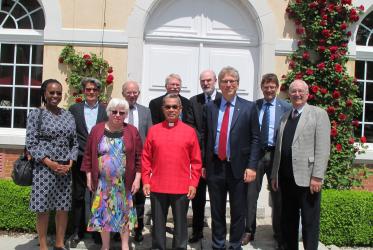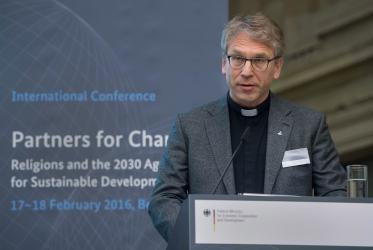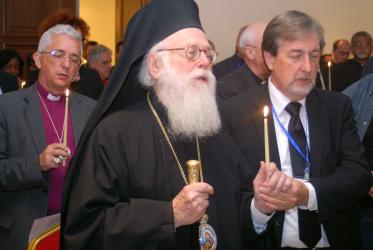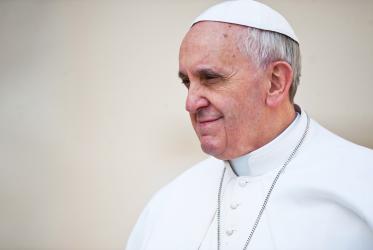Displaying 21 - 40 of 40
Panel discussion fields ideas on European identity
26 April 2016
Symposium focuses on religion, violence, extremism
04 February 2016
Rebuilding a smashed church in Albania
23 December 2015
Basel University honors Ghanian Methodist theologian
09 December 2015
WCC urges responsibility for and support to the refugees in Europe
04 September 2015
Dialogue on politicization of religion and rights of minorities
17 September 2013
Cold War politics and the world’s churches
04 September 2013












